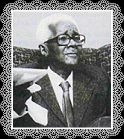Bibliography | Contact | Links | News

Assignments and Evaluation
schedule | descriptions | samples of topics | resources | evaluation procedures & standards
Schedule of Assignments
[return to top]
When applicable, assignment sheets will be appended to the dates shown below. Click on a date to bring up an assignment sheet, in PDF format.
-
Wednesday, October 3: Research Paper Prospectus due in class (click for more information)
-
Wednesday, October 10: Take-Home Essay Exam due in class (click on highlighted portion)
-
Wednesday, November 14: Research Paper due in class (click for more information)--deadline re-extended
-
December 5, 9:00am-12:00pm, H-509: Final Exam (now online)
Citation format:
Please use the
parenthetical reference + reference list
option as demonstrated in
this
document.
Descriptions of Graded Course Material
[return to top]
PARTICIPATION: (15%)
Each student is
expected to attend classes regularly, to demonstrate preparedness, and to
facilitate the discussion by relating to the topics responsibly (avoiding
personal attacks, for example). This portion of the course grade will be
based upon evidence of reading, critical thinking, interest, and
demonstrated understanding. This part of the course grade will not be
decided upon until final grades for this course are prepared for submission
to the university. The basis for the course director arriving at a grade for
this portion is decidedly impressionistic, without being random or unfair.
Class discussions will normally take place during the second half of each
week’s session. Students will first be asked to reconstruct the arguments
set forth in the assigned readings and to discern ways in which the
theoretical constructs can be applied. Secondly, students will be invited to
discuss and debate questions they raise with the course director, or that
the course director may raise.

MID-TERM TAKE HOME ESSAY EXAM: (25%)
You will be
assigned one essay question based on assigned readings, lecture material and
class discussions for Part One of the course (see the schedule of classes
below). Details on the length and format, as well as the actual question,
will be provided in advance. The exam will be due at the start of class on
Wednesday, October 10.
RESEARCH PAPER: (5% + 25%)
By Wednesday, October 3, at the latest, each student
is to hand in a research topic prospectus (2-3 pages), including a select
working list of about five published sources. This prospectus will provide
incentive for investigating a body of literature on a selected area of the
world and articulating a research focus; it will assist the instructor in
offering guidance. The prospectus itself must be approved by the instructor
and will be assigned a grade worth 5% of the final course grade.
The research paper, based upon the prospectus, is to be prepared and
submitted by Wednesday, October 31. The research paper should not exceed 10
pages in length (typed, double-spaced, one-inch margins).
There are two options for the research paper: (1) you may choose to focus on
a particular ideology, event, conflict, individual or movement, in a
specific part of the world, making sure to apply theoretical approaches from
political anthropology while using a variety of sources, including other
anthropological literature on the topic; or, (2) for lack of a better term,
an “extended book analysis” project, where you read and provide a complete
and detailed summary of a “classic” in political anthropology and then,
using the aid of more advanced library search methods, you track the impact
of the book through other books, journal articles, and book reviews, in
order to come to an estimation of the influence of the book in focus, and
reactions to it. Finally, you will try to situate the book within the course
content as outlined in this syllabus and in class. A list of suggested
titles will be provided. In addition, possible research topics are also
suggested at the end of this syllabus, a list which is neither definitive
nor exhaustive and is open to including your suggested sources.
The paper must be typewritten and must conform to general rules for journal
manuscripts (double-spaced, appropriate margins, etc.). Proper and
consistent citation of sources is required and should follow the style
suggested below. Repeated errors that show a lack of proofreading, incorrect
citation and referencing, and lack of essay formatting will each receive a
deduction of 5% of the points for the research paper. Lateness will be
penalized at 5% of the points for the paper, for each day late, including
weekends. Extensions must be arranged in advance (see Note below).
FINAL EXAM (30%)
Two essay
questions will be assigned in advance, to be worked on at home, and then
written up in a session to be scheduled for sometime during the December
5-20 examinations period. Questions will be assigned in advance of the last
day of class. Students will be permitted to bring a single page of notes
with them to the examination room. The exam will last a maximum of three
hours. Note that final exams are not returned to students.
Samples of Possible Research
Topics
[return to top]
For the Extended Book Analysis option, here are some “classics” (some new) in political anthropology that you might consider, apart from any others that you might suggest in your research paper prospectus.
 Bailey,
F.G. 1969. Stratagems and Spoils: A Social Anthropology of Politics.
Oxford: Basil Blackwell & Moll, Ltd.
Bailey,
F.G. 1969. Stratagems and Spoils: A Social Anthropology of Politics.
Oxford: Basil Blackwell & Moll, Ltd.
Balandier, G. 1970. Political Anthropology. New York: Random House.
Balibar, Etienne and Immanuel Wallerstein. 1991. Race, Nation, Class: Ambiguous Identities. London: Verso.
Barth, Frederick. 1959. Political Leadership Among the Swat Pathans. London: Athalone.
Beacon. Mair, Lucy. 1962. Primitive Government. Baltimore: Penguin.
Clastres, Pierre. 1977. Society Against the State. New York: Urizen Books.
 Cohen,
Abner. 1981. The Politics of Elite Culture. Berkeley: University of
California.
Cohen,
Abner. 1981. The Politics of Elite Culture. Berkeley: University of
California.
Cohen, Abner.. 1974. Two-Dimensional Man: An Essay on the Anthropology of Power and Symbolism in Complex Societies. London: Routledge and Kegan Paul.
Cohen, R., & E. Service, eds. 1978. Origins of the State: The Anthropology of Political Evolution. Philadelphia: ISHI.
Comaroff, Jean. 1985. Body of power; Spirit of Resistance: the Culture and History of a South Africa People. Chicago: University of Chicago Press.
Donham, Donald. 1999. History, Power, Ideology: Central Issues in Marxism and Anthropology. Berkeley, CA: University of California Press.
 Fortes,
Meyer and E. E. Evans-Pritchard, eds. 1940. African Political Systems.
Oxford: Oxford University Press.
Fortes,
Meyer and E. E. Evans-Pritchard, eds. 1940. African Political Systems.
Oxford: Oxford University Press.
Fried, Morton H. 1967. The Evolution of Political Society. New York: Random House.
Gluckman, Max. 1955. Custom and Conflict in Africa. Oxford: Blackwell.
Gluckman, Max. 1963. Order and Rebellion in Tribal Africa: Collected Essays. London: Cohen & West.
Kapferer, Bruce. 1997. The Feast of the Sorcerer: Practices of Consciousness and Power. Chicago and London: University of Chicago Press.
Leach, Edmund R. 1954. Political Systems of Highland Burma. Boston: Beacon Press.
 Middleton, J. and D. Tait. 1958. Tribes Without Rulers: Studies in
African Segmentary Systems. London: Routledge and Kegan Paul.
Middleton, J. and D. Tait. 1958. Tribes Without Rulers: Studies in
African Segmentary Systems. London: Routledge and Kegan Paul.
Ong, Aihwa. 1999. Flexible Citizenship: The Cultural Logics of Transnationality. Durham, NC: Duke University Press.
Schapera, Isaac. 1956. Government and Politics in Tribal Societies. London: Watts
Scott, James C. 1985. Weapons of the Weak: Everyday Forms of Peasant Resistance. New Haven, CT: Yale University Press.
Scott, James. 1990. Domination and the Arts of Resistance. New Haven: Yale University Press.
 Service, Elman R. 1975. Origins of the State and Civilization: The
Processes of Cultural Evolution. New York: W. W. Norton.
Service, Elman R. 1975. Origins of the State and Civilization: The
Processes of Cultural Evolution. New York: W. W. Norton.
Williams, Brackette. 1991. Stains on My Name, War in My Veins: Guyana and the Politics of Cultural Struggle. Durham, NC: Duke University Press.
Wolf, Eric R. 1969. Peasant Wars of the Twentieth Century. New York: Harper and Row.
Wolf, Eric R. 1999. Envisioning Power: Ideologies of Dominance and Crisis. Berkeley: University of California.
 Worsley,
Peter. 1968. The Trumpet Shall Sound, 2nd ed. New York: Schocken.
Worsley,
Peter. 1968. The Trumpet Shall Sound, 2nd ed. New York: Schocken.
For the Regular Research Paper option, here are only some topics, issues, and themes you might consider, keeping in mind that this by no means a representative or comprehensive list of possibilities. Hopefully this list will serve to provide some inspiration for alternative research topics, and you should feel free to adopt/adapt any of these topics.
- “African Tribalism” and the Hutu-Tutsi conflict in Rwanda
- “Third World Feminism”: any different from “First World” Feminism?
- “Third World Marxism”: any different from “First World” Marxism?
- Bolivian Amerindians in national political campaigns
- Challenges to Transactionalist Theory
- Che Guevara in Bolivia: analyses of a revolution that never was
- Conceptual
problems with the category of “peasant” in anthropology

- Conceptualizing “passive” and “active” resistance in a historical case study: problems and limitations with the idea of resistance?
- Consumerism as an expression of agency? Anthropological debates on culture, consumption and political economy
- Culture, resistance and the Gramscian concept of “hegemony”
- Ethnic nationalism and the demise of states such as Yugoslavia and the USSR
- Gandhian philosophies and the politics of transformation in India
- Instrumentalist versus primordialist approaches to ethnic politics, applied to a specific case study
- Inter-ethnic conflict in Sri Lanka
- Kayapo, Xavante or other Amerindians of the Brazilian Amazon, in conflict with the national state and/or international development agencies
- Liberation
Theology and working class political rebellion in Latin America

- Malcolm X and the movement for African-American civil rights and social transformation
- Messianic leaders
- Millenarian movements
- Movements embodying the principle of “think globally, act locally.”
- Peasant rebellions
- Reformism versus revolution: anthropological analysis of a historical case study
- Religion and grassroots political resistance: e.g. Vodou and politics in Haiti
- Structural functionalism: theoretical problems concerning conflict and change
- The Eurocentricity of Development Theories and Practices
- The politics of decolonization in states which recently gained independence (i.e., post-1960s)
- The politics of national identity in settler societies: i.e., Canada, Australia, New Zealand, etc.
- The politics of
stabilization: how some political systems seemingly endure with little
change

- The symbols of populist politics in Peronist Argentina
- The Zapatista rebellion in Chiapas, Mexico
- Transformations of traditional chiefdoms under colonial rule
- What are “post-colonial politics”? Theoretical review, applied to a case study
- World-Systems
Analysis versus Marxist Theories of Capitalism: anthropological
responses
Resources for
Writing Research Papers, Citing and Referencing Sources
[return to
top]
Please take the time to review and use the following resources which will be of benefit to your work:
-
How to Write a Research Paper, see also The Sundance Reader.
-
Concordia Code of Academic Conduct (PDF)--keep in mind that since these policy documents are being made available, you will not be able to plead ignorance of the regulations.
-
AVOIDING PLAGIARISM--please read this.
-
For the purposes of our course, we will use the following citation guide. Please ensure that you follow this document especially when writing your references and preparing your bibliographies. Use the parenthetical reference + reference list option as demonstrated in that guide.
How Student Work is Evaluated
[return to
top]
For all
work done in this course you will receive a numerical grade which will be
converted to a letter grade when final grades are processed. To translate
numbers into letter grades, please consult the following chart, copied
directly from a faculty handbook in the Department of Sociology and
Anthropology. It is vital that you understand that the characterizations
below (i.e., “excellent”) are central in guiding the instructor’s evaluation
of the quality of a paper.
A paper that covers all of the basics, in a reasonably competent fashion,
without major flaws, is deemed “satisfactory.” One that has few flaws, and
shows an advanced understanding, writing and research ability is deemed
“very good.” A paper that leaves little room for improvement (within the
context of expectations of a 400 level course), demonstrating that the
student has taken considerable initiative, showing sophisticated
understanding and research ability, is deemed “excellent.”


In general,
student work
is assessed in the following manner. Student assignments are evaluated in
comparison with each other, normally done by the instructor assembling a
random sample and highlighting the best elements of each paper, which then
forms the template by which papers are judged. The paper(s) that come(s)
closest to achieving the highest standards for student work will receive the
highest grades. Students are evaluated on the extent and depth to which they
have utilized assigned readings (when applicable). Students are also
evaluated on their ability to successfully apply key course concepts to
their own writing. Analytical and conceptual clarity (the argument does not
contradict itself repeatedly, the writer stays focused, any concepts used
are defined, concepts are related to one another when applicable, pros and
cons are considered, assertions are supported with evidence or logic), are
vital elements of a paper deemed to be “very good” or better. Structure,
logical organization, and effective writing are of substantial importance.
In the case of research papers, students that demonstrate having taken
initiative by covering a reasonably wide and diverse range of sources will
be appropriately rewarded.
 LATE
SUBMISSIONS:
LATE
SUBMISSIONS:
Where extensions for
assignments are not negotiated in advance (“my hard drive was wiped clean”
and “my computer is in for repairs” are not acceptable reasons), only
medical certification will be accepted as a valid reason for delayed
submission of assignments. Otherwise, 5% of the particular grade for that
assignment will be deducted on each day (weekends included) that the
assignment is late. Note that after 10 days of being late, it will be
impossible to receive a passing grade for that assignment. After 20 days,
your grade for that assignment will have reached zero, and it will not be
accepted. Note that papers are not stamped by the Department: the date I
retrieve a paper is the date of submission, unless you email me a copy of
your paper as soon as it is finished—you are still responsible for handing
in a hard copy. There are neither supplemental exams nor other forms of
supplemental work in this course.
PLEASE
NOTE:
Arrangements for Late Completion beyond the last class,
should be negotiated and arranged with me before final grades are due. Only
the most compelling reasons, with convincing documentation, can be
considered.
There will be no supplemental exams.
Do not call the main office of the Department for course-related inquiries.
Do not submit your assignments to the Department: they are not stamped, thus
there is no official record of when you deposited your paper, and I will be
forced to use the day I actually pick up your paper as the date of
submission, or, the date on which you email me a copy (but in all cases
except the final exam, I require printed copies of your work).
Finally, please note that the instructor may need to contact the class by
e-mail, periodically, for important announcements. It is vital that you log
in to your “MyConcordia Portal” account, using your student ID, and ensure
that you have a valid e-mail address that you frequently check.
Academic Regulations
Section 16 (Academic Information: Definitions and Regulations) of the Undergraduate Calendar will be strictly administered – particularly on deadlines, Failing Grades, Administrative Notations, Late Completions=‘INCompletes’ (Grade/INC), ‘Failed No Supplementals’ (FNS), ‘Did Not Writes’ (Grade/DNW). Make sure you get a copy of the undergraduate calendar, also available online at http://registrar.concordia.ca/calendar/ calendar.html, and read that material.
PLEASE NOTE THAT PLAGIARISM cannot be
tolerated. In instances where plagiarism is detected, the instructor is
obligated by Concordia’s Academic Code to report this to the Dean’s office.
You must visit the following websites for further guidance:
Concordia Code of Academic Conduct in PDF format
Concordia University Library document to help you Avoid Plagiarism

